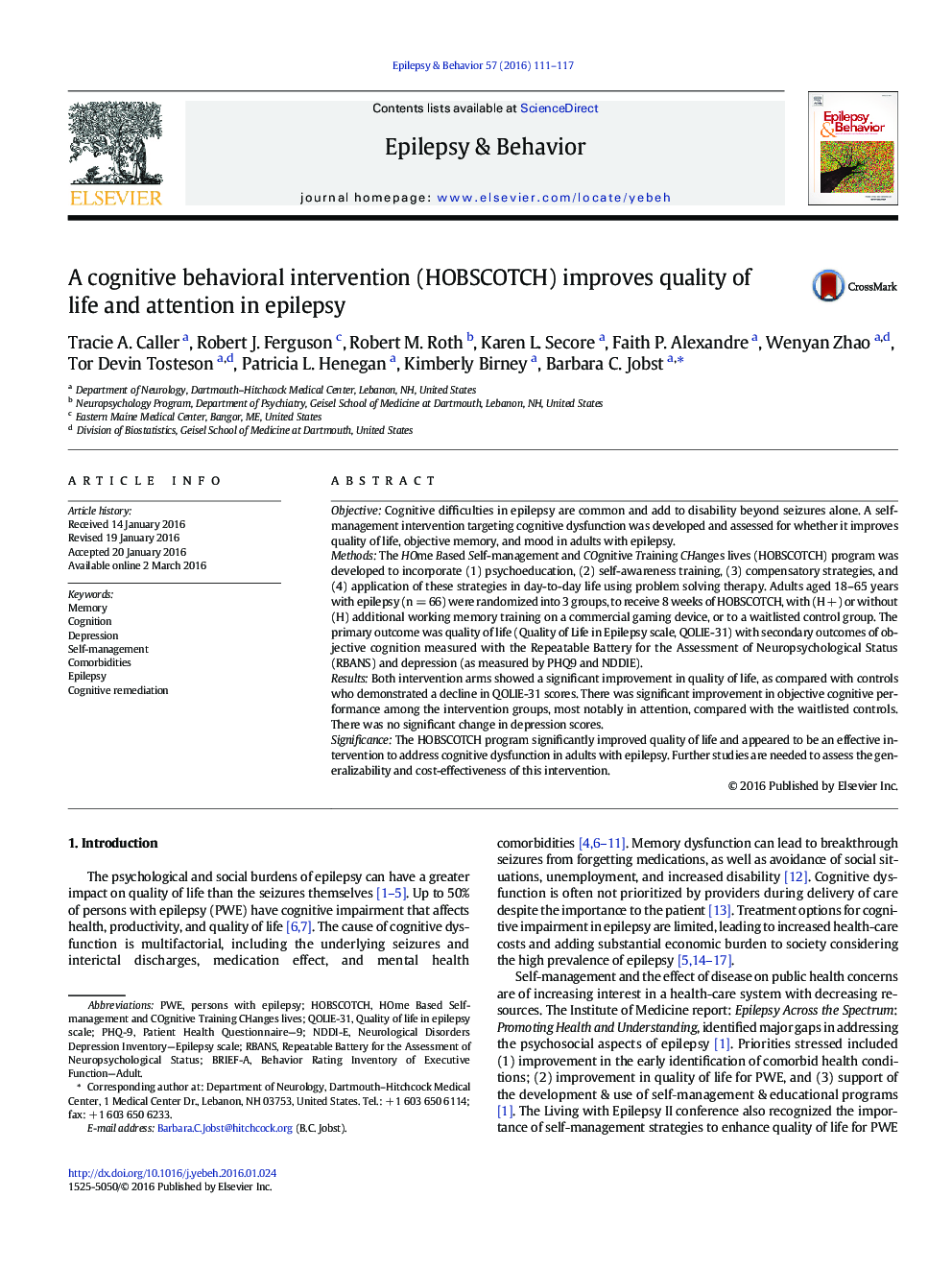| Article ID | Journal | Published Year | Pages | File Type |
|---|---|---|---|---|
| 6010233 | Epilepsy & Behavior | 2016 | 7 Pages |
â¢Cognitive dysfunction in epilepsy is common, yet limited treatments exist.â¢A self-management intervention was developed to address cognition in epilepsy.â¢HOBSCOTCH improved quality of life and attention in adults with epilepsy.â¢The addition of working memory training did not appear to add benefit.
ObjectiveCognitive difficulties in epilepsy are common and add to disability beyond seizures alone. A self-management intervention targeting cognitive dysfunction was developed and assessed for whether it improves quality of life, objective memory, and mood in adults with epilepsy.MethodsThe HOme Based Self-management and COgnitive Training CHanges lives (HOBSCOTCH) program was developed to incorporate (1) psychoeducation, (2) self-awareness training, (3) compensatory strategies, and (4) application of these strategies in day-to-day life using problem solving therapy. Adults aged 18-65 years with epilepsy (n = 66) were randomized into 3 groups, to receive 8 weeks of HOBSCOTCH, with (H +) or without (H) additional working memory training on a commercial gaming device, or to a waitlisted control group. The primary outcome was quality of life (Quality of Life in Epilepsy scale, QOLIE-31) with secondary outcomes of objective cognition measured with the Repeatable Battery for the Assessment of Neuropsychological Status (RBANS) and depression (as measured by PHQ9 and NDDIE).ResultsBoth intervention arms showed a significant improvement in quality of life, as compared with controls who demonstrated a decline in QOLIE-31 scores. There was significant improvement in objective cognitive performance among the intervention groups, most notably in attention, compared with the waitlisted controls. There was no significant change in depression scores.SignificanceThe HOBSCOTCH program significantly improved quality of life and appeared to be an effective intervention to address cognitive dysfunction in adults with epilepsy. Further studies are needed to assess the generalizability and cost-effectiveness of this intervention.
